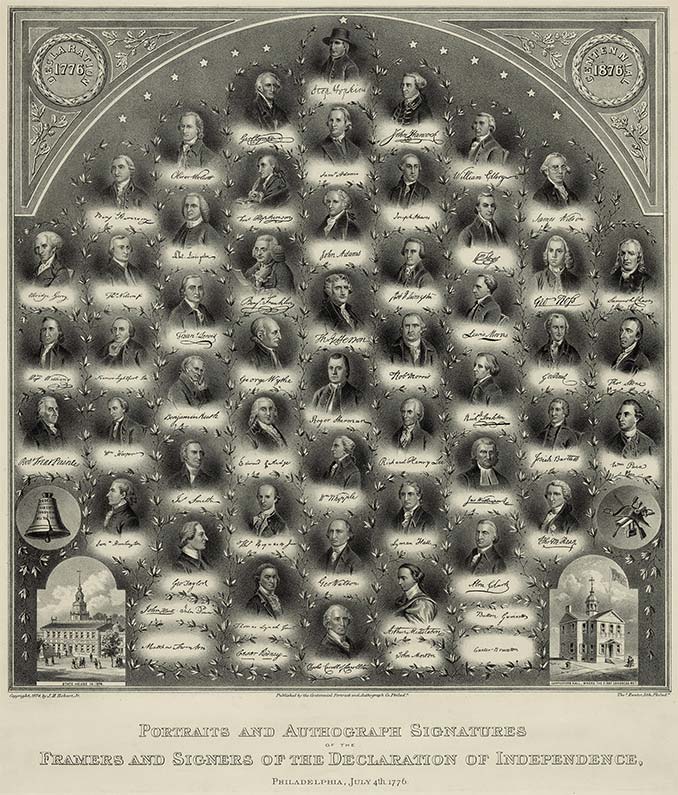

On route to Philadelphia for a prisoner exchange in July 1781, Heyward almost drowned. They were held there for almost a year before being released. Augustine, Florida, which was reserved for people the British thought were particularly dangerous.

Upon the surrender of Charleston, all three men were captured by the British and were sent to a prison in St. His fellow signers, Heyward and Rutledge, fought in that battle as well. William Gardiner and his troops.Īrthur Middleton, the last of the South Carolina delegation who served in the militia, took up arms against the British during the siege of Charleston in 1780. After returning home from attending the Second Continental Congress in 1777, he joined the militia as captain of an artillery battalion.īoth Heyward and Rutledge aided their country in the battle at Port Royal Island, where they helped Gen. At age 26, Rutledge was the youngest signer of the Declaration of Independence. Heyward’s compatriot in the South Carolina delegation, Edward Rutledge, also served in the state militia. In 1779, he joined the South Carolina militia as a captain of artillery.
#Signers of the declaration of independence full
The prisoners were summarily executed in full view of British troops.
#Signers of the declaration of independence trial
Heyward drew the ire of the British when, as a circuit court judge, he presided over the trial of several loyalists who were found guilty of treason. of South Carolina was a signer of both the declaration and the Articles of Confederation. Thomas Heyward Jr., Edward Rutledge, and Arthur Middleton Of the 56 men who signed the declaration, 12 fought in battles as members of state militias, five were captured and imprisoned during the Revolutionary War, 17 lost property as a result of British raids, and five lost their fortunes in helping fund the Continental Army and state militias battle the redcoats.īelow we will explore the sacrifices the signers made on behalf of the American cause. The signers’ mutual pledge to themselves to sacrifice their lives, fortunes, and sacred honor for the cause of independence shows that these men took seriously their duties to the people of the new nation.Ī look at the historical record will show this to be beyond dispute. In a time where talk of rights dominates our political discourse, a focus on duties is indispensable in order to teach citizens the responsibilities they owe toward each other and their posterity. Principles need to be enforced by individuals who have the habits of character necessary to fight for them, and perhaps even die for them, if need be. Though the principles enunciated in its opening paragraphs, such as the self-evident truth that all men are created equal, provide the moral and philosophical foundation on which the American regime rests, it is important to acknowledge that declaring principles alone secures nothing. See more Encyclopedia articles on: U.S.When reading the Declaration of Independence, it is easy to focus only on the sweeping language of the second paragraph and skip over the names and mutual pledge of the signers at its conclusion. Copyright © 2012, Columbia University Press. The Columbia Electronic Encyclopedia, 6th ed. The remaining 55 (see individual articles on each) are those of Josiah Bartlett, William Whipple, Matthew Thornton, Samuel Adams, John Adams, Robert Treat Paine, Elbridge Gerry, Stephen Hopkins, William Ellery, Roger Sherman, Samuel Huntington, William Williams, Oliver Wolcott, William Floyd, Philip Livingston, Francis Lewis, Lewis Morris, Richard Stockton, John Witherspoon, Francis Hopkinson, John Hart, Abraham Clark, Robert Morris, Benjamin Rush, Benjamin Franklin, John Morton, George Clymer, James Smith, George Taylor, James Wilson, George Ross, Caesar Rodney, George Read, Thomas McKean, Samuel Chase, William Paca, Thomas Stone, Charles Carroll of Carrollton, George Wythe, Richard Henry Lee, Thomas Jefferson, Benjamin Harrison, Thomas Nelson, Jr., Francis Lightfoot Lee, Carter Braxton, William Hooper, Joseph Hewes, John Penn, Edward Rutledge, Thomas Heyward, Jr., Thomas Lynch, Jr., Arthur Middleton, Button Gwinnett, Lyman Hall, and George Walton. The first is that of John Hancock, president of the Continental Congress. Lee, Wolcott, Gerry, McKean, and Thornton) were affixed on Aug. Livingston, for example, did not) nor were all the signers present at its adoption. Not all the men who helped draw up or voted for the Declaration signed it (Robert R.


 0 kommentar(er)
0 kommentar(er)
